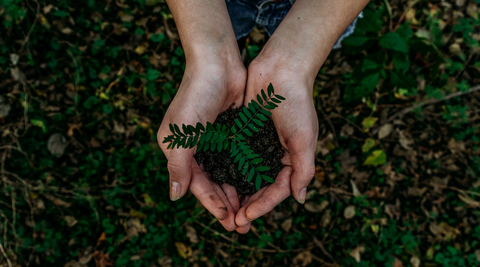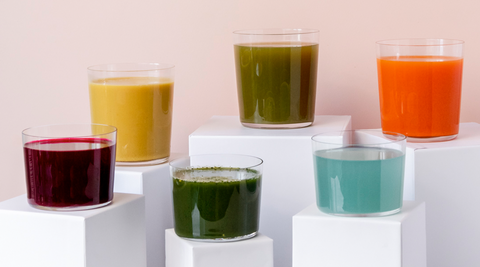Written by: Sam Bowman
When most people think about adopting a new diet plan, it improves their health and well-being. However, the diet you follow can also impact the environment. Taking care of your gut health can be an incredibly sustainable lifestyle change.
Many ingredients promoting gut health and juicing are easy to find locally and can be grown/produced with eco-friendliness in mind.
So, what can you do to make your diet more eco-friendly and sustainable? How can you make sure your efforts to improve your physical health also improve the environment? Let’s take a look at how your food choices can make a difference, especially when it comes to improving your gut health.
Practicing Mindfulness With Your Diet
Your mental health can play a large role when it comes to your relationship with food. You’ve probably heard about things like “stress eating” or emotional eating. However, that relationship can also be affected by your mindfulness.
Mindfulness and meditation aren’t just about finding moments of relaxation. They’re both beneficial to your mental and physical health, but they can also make you a more conscious eater by helping you focus on the present and build a sustainable mindset by
- Increasing your cognitive flexibility
- Helping you focus on nonmaterial value
- Allowing you to pay attention to the mind-body-nature connection
Mindfulness and meditation can change your habitual behaviors when you practice them every day. By focusing on the present, you’ll be able to appreciate the environment around you and become more in tune with what the earth is giving back. That makes it easier to want to do more for the planet.
When you practice mindful eating, you’ll be aware of how everything you consume impacts the environment, drawing you toward healthier, more sustainable choices.
If you’re not sure how to get started, consider using a guided meditation app to help you, so you’ll reap the benefits right away.
Paying Attention to Where Your Food Comes From
In addition to being mindful of what you eat, it’s just as crucial to know where it’s coming from. A piece of produce might be good for your gut and the planet, but only if it was grown organically and doesn’t travel halfway across the world to get to you.
Food is a process. Someone has to grow it and transport it for it to make it to your table. If you’re trying to protect the environment, supporting sustainable agriculture is important. You can do that by
- Buying from local farmers
- Only choosing organic foods
- Supporting businesses with sustainable practices
- Growing your own food
Shopping locally, especially for healthy ingredients, can be much better for your health and the planet. For example, if you regularly consume ginger to help with nausea, inflammation, or to maintain gut health, you’re likely to experience greater benefits when you choose an organic crop, and when you purchase it directly from a farmer, they’ll be able to offer more information and advice on how to consume it properly (and in creative dishes).
No matter how you get your food, you can continue to do your part by “finishing” the process in an eco-friendly way. Reduce waste as much as possible by recycling, composting, and reusing what you can.
Tweaking Your Habits
You don’t have to make any drastic dietary changes to be more mindful and sustainable with your diet. A few simple habitual changes can go a long way and might motivate you to do more for the environment (and your health).
One of the easiest ways to be greener with your diet is to reduce your meat consumption. That doesn’t mean you have to become a vegan overnight. However, meat consumption is linked to the release of greenhouse gases thanks to livestock farming practices. It destroys ecosystems, wastes water, and contributes to climate change.
However, by not eating meat just one day a week, you can make an incredible impact. Many people across the country have adopted the “Meatless Monday” routine, and while it doesn’t matter which day you decide to forego meat, doing so will reduce your carbon footprint by 8 pounds each time.
Other habitual changes to consider include looking at packaging and how foods are presented. Eating smarter for the environment means shopping smarter. Buy items in bulk whenever you can, using your own reusable containers. Look for items in recyclable packaging to reduce the impact of waste, and shop for organic goods whenever you can.
These small changes won’t take much effort, but they can make a big difference. Between knowing where your food comes from, growing your own, and paying attention to the connection between your mental well-being and sustainability, you can establish a diet that’s as good for the planet as it is for your body.




Comments (0)
There are no comments for this article. Be the first one to leave a message!